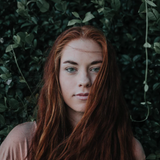Interesting, and easy to understand—except in one detail, which I will mention presently. It is easy to understand why the Queensland sugar planter should want the Kanaka recruit: he is cheap. Very cheap, in fact.
These are the figures paid by the planter: L20 to the recruiter for getting the Kanaka or “catching” him, as the missionary phrase goes; L3 to the Queensland government for “superintending” the importation; L5 deposited.
Government for the Kanaka's passage home when his three years are up, in case he shall live that long; about L25 to the Kanaka himself for three years' wages and clothing; total payment for the use of a man three years, L53; or, including diet, L60. Altogether, a hundred dollars a year.

One can understand why the recruiter is fond of the business; the recruit costs him a few cheap presents (given to the recruit's relatives, not to the recruit himself), and the recruit is worth L20 to the recruiter when delivered in Queensland. All this is clear enough; but the thing that is not clear is, what there is about it all to persuade the recruit. He is young and brisk; life at home in his beautiful island is one lazy, long holiday to him; or if he wants to work he can turn out a couple of bags of copra per week and sell it for four or five shillings a bag. In Queensland he must get up at dawn and work from eight to twelve hours a day in the canefields—in a much hotter climate than he is used to—and get less than four shillings a week for it.
Clean water means less sick days. For a child this means a brighter future. The ripple effects of access to clean water are huge.
RDIC’s filters in their Cambodian warehouse which are 95% effective against bacteria like E. Coli to help bring safe water to kids in Cambodia.





Laissez un commentaire